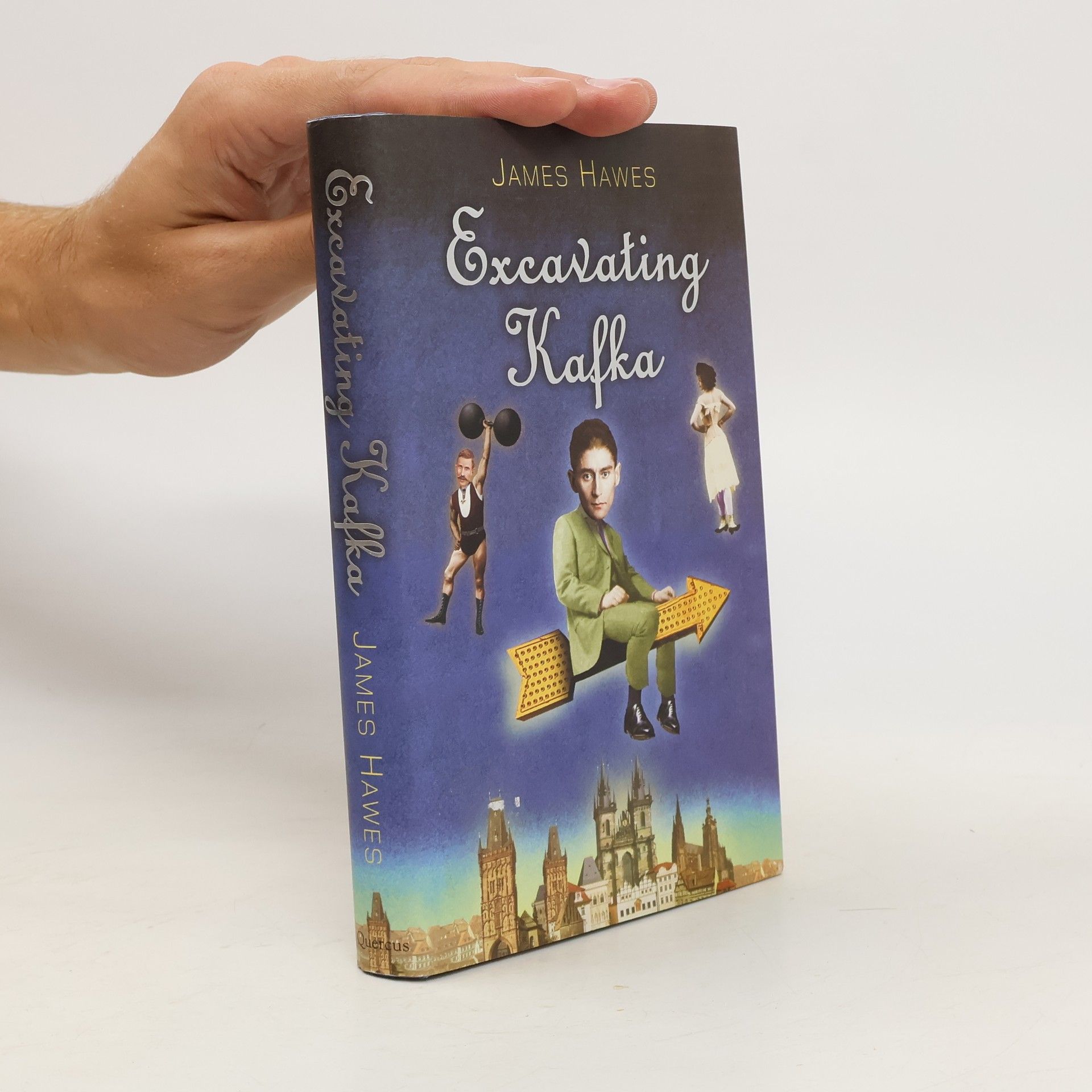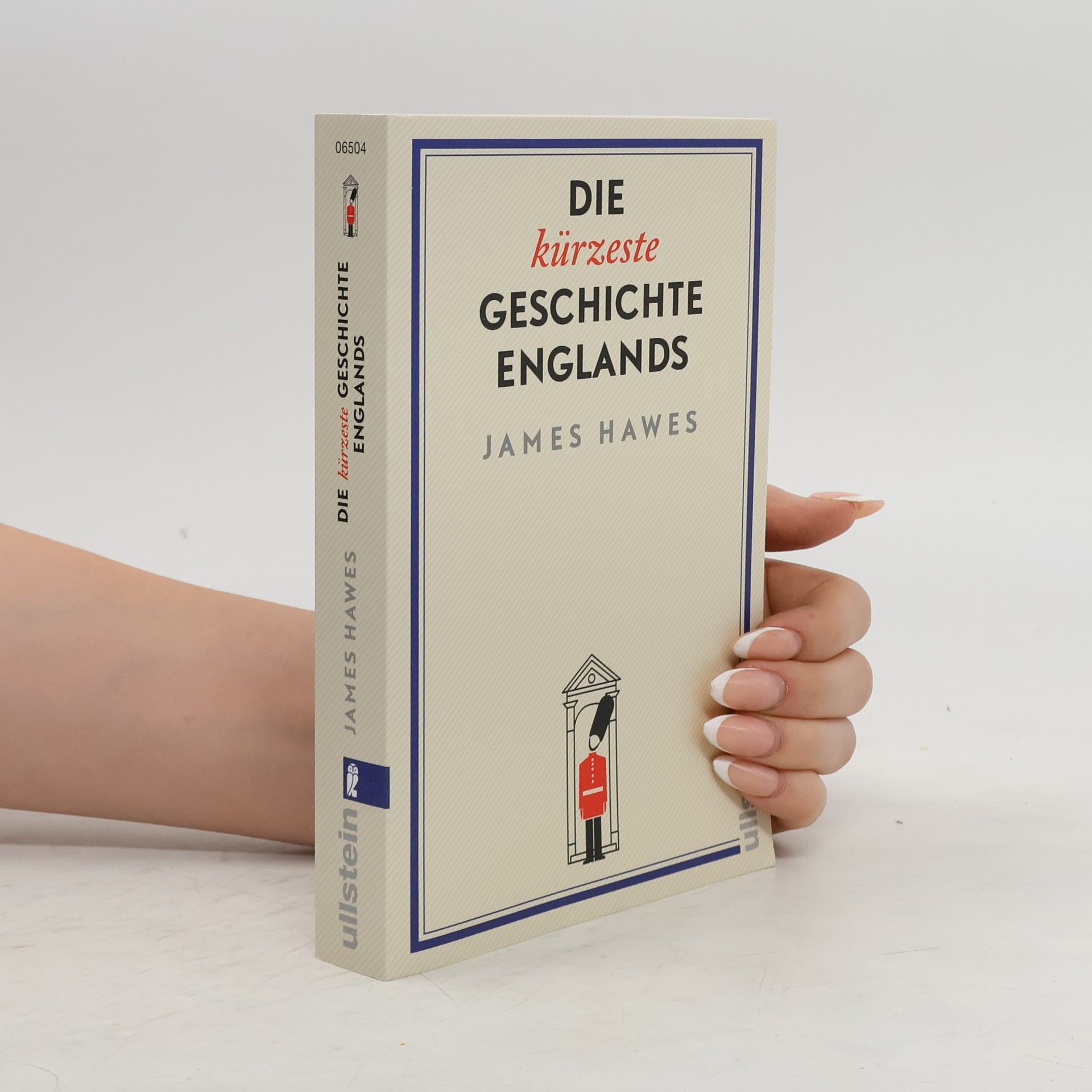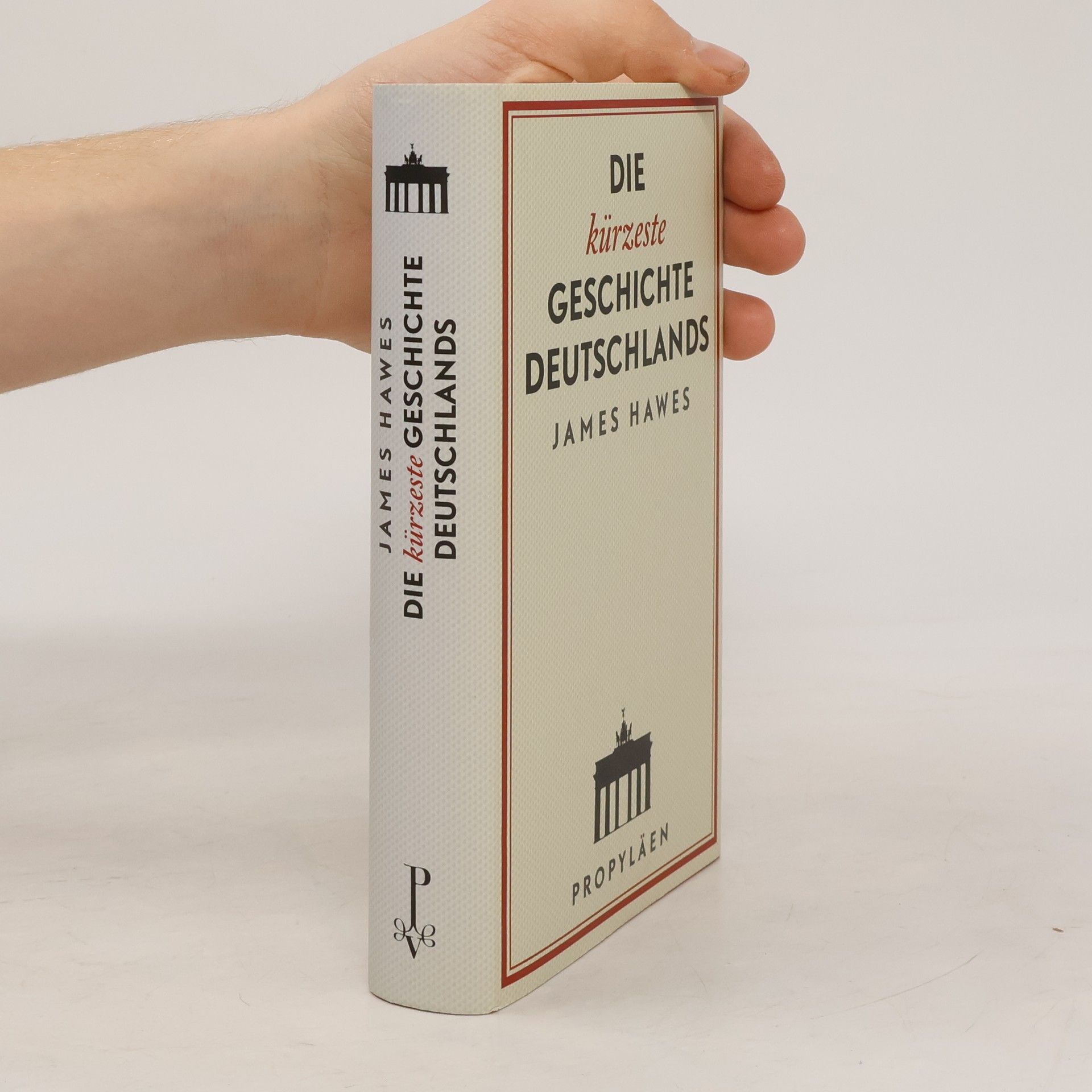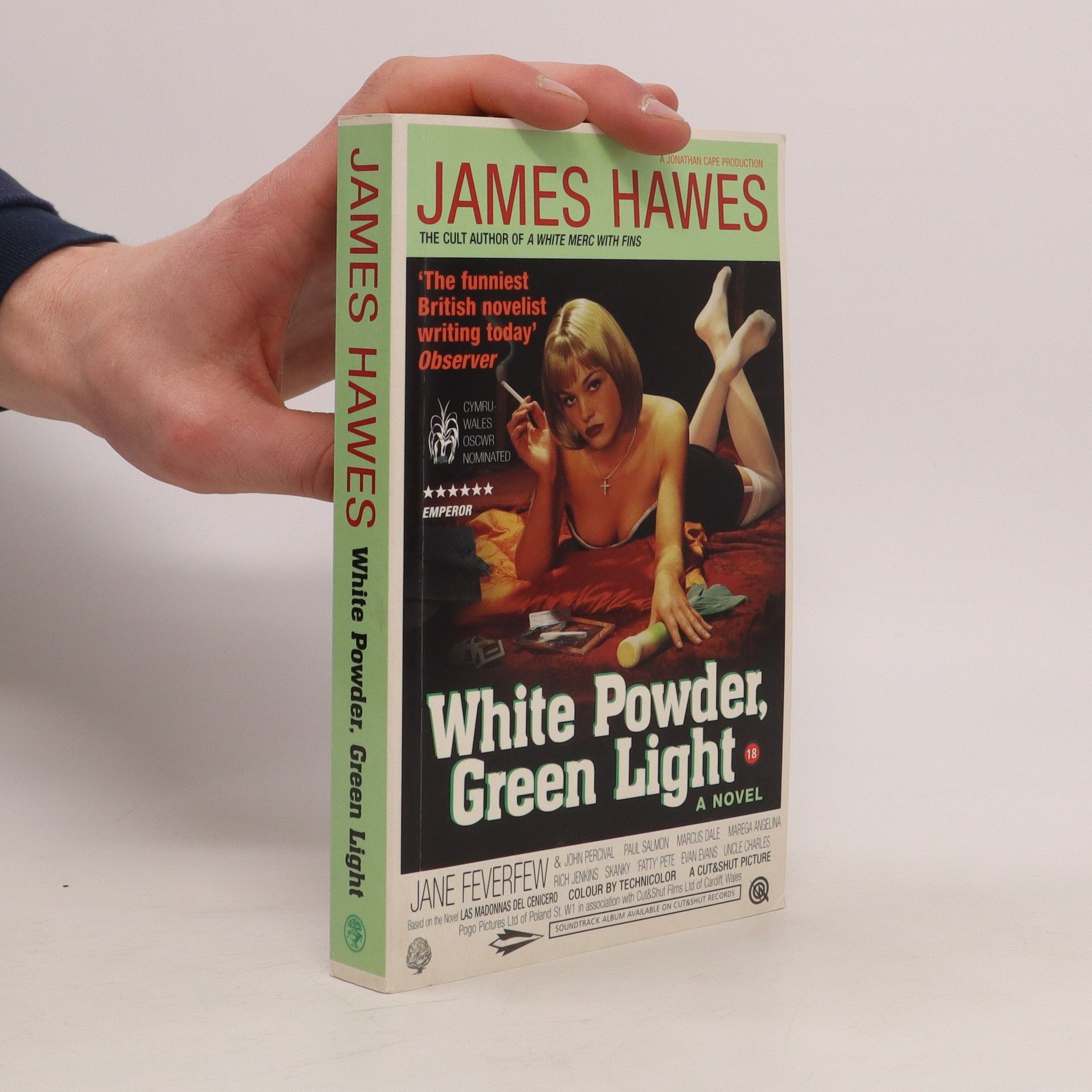The dazzling debut of a new voice in fiction, this is the funny, unexpected story of a balding, thickening 28-year-old who, having spent the bulk of his twenties avoiding a career in the quasi-black market of London's temp agencies, now finds himself not only without a job, but seriously without prospects. How he solves this problem is the action that propels this witty, acutely observant and captivating first novel.
James Hawes Bücher







Auf 250 Seiten einmal durch 2000 Jahre deutscher Geschichte: Überzeugend und souverän führt James Hawes von den alten Römern bis in die Gegenwart. Eine große Tour durch die Jahrhunderte, die in einer leidenschaftlichen Hommage an die Bundesrepublik endet. Der Sieg gegen die Römer im Teutoburger Wald, die barbarische Grausamkeit des Dreißigjährigen Kriegs, der Aufstieg des militaristischen Preußens im 18. Jahrhundert — wie Blitzlichter scheinen diese historischen Ereignisse in James Hawes’ fulminantem Parforceritt durch die deutsche Geschichte auf. Die alles beherrschende Frage, die sich wie ein roter Faden durch die Seiten zieht: Gehört das Herzstück Europas zum Westen oder zum Osten? Für Hawes ist klar, dass dieses Land zum Westen zählt. Die Bundesrepublik, so wie wir sie kennen, sieht er in der Tradition des wahren, historischen Deutschlands, dem Staatshörigkeit, puritanischer Eifer und narben gesichtiger Militarismus stets fremd waren. Hawes ist sich sicher: Deutschland ist heute »Europas größte Hoffnung«.
Die kürzeste Geschichte Englands
Die spinnen, die Briten. Der Bestsellerautor erzählt die Geschichte eines merkwürdigen Landes
Mit dem Bestseller »Die kürzeste Geschichte Deutschlands« hat James Hawes eine kühne Deutung der Deutschen vorgelegt. Jetzt widmet er sich seinen britischen Landsleuten – und folgert: England ist zweigeteilt, nicht erst seit dem Brexit. Auf der einen Seite der reiche, selbstzufriedene Süden, auf der andern der raue, ärmere Norden. Der Graben existiert schon seit Jahrhunderten, doch in den letzten Jahren hat sich die Kluft zwischen Konservativen und Liberalen gefährlich vertieft: Die eine Hälfte sehnt sich nach der vermeintlich glorreichen Vergangenheit des British Empire, die andere will Teil eines weltoffenen Europa bleiben. Für diese Gefahr gibt es laut Hawes nur eine Lösung: die Überwindung der Brüche und ein gemeinsamer Kampf um ein neues Großbritannien.
Explore the history of the British isles through 80 extraordinary creations -- from Beowulf and the Bayeux Tapestry to Banksy, Stormzy, and beyond...A companion book to the landmark BBC series,BRILLIANT ISLES tells the story of these islands through art, music, buildings and literature -- the creations of visionaries, mavericks and rule-breakers who responded to their times and shaped the future. Whether read cover-to-cover or dipped into, this is a vibrant, surprising and witty guide to a unique culture, by one of our sharpest writers.
Kafka's features, and that dreaded word, Kafkaesque, are known to millions who have never read serious literature. Generations of academics and critics have maintained the image of Franz Kafka as a tortured seer whose works defy interpretation. In Excavating Kafka James Hawes reveals the truth that lies beneath the image of a middle-European Nostradamus with a typographically irresistible name. The real Franz Kafka was no angst-ridden paranoid but a well-groomed young man-about-town who frequented brothels, had regular sex with a penniless-but-pretty girl and subscribed to upmarket pornography (published by the very man who published Kafka's first stories). Excavating Kafka debunks a number of key facets of the Kafka-Myth, including the idea that Kafka was the archetypal genius neglected in his lifetime; that he was stuck in a dead-end job and struggling to find time to write; that he was tormented by fear of sex; that he had a uniquely terrible, domineering father who had no understanding of his son's needs; that his literature is mysterious and opaque; that he constructs fantasy-worlds in which innocent everymen live in fear of mysterious and totalitarian powers-that-be. Written with the panache of a supremely gifted comic writer, Excavating Kafka is an engaging and involving reassessment of a major figure of literary modernism that will be welcomed and enjoyed by students of Kafka and by general readers alike.
"A fast-paced tour of 2,000 years of English history, tracing its secret north-south divide and notorious class system"--
White powder, green light
- 288 Seiten
- 11 Lesestunden
James Hawes' fourth novel takes his not-quite-innocent heroine, Jane Feverfew, on a comic journey from the eccentrities of Wales into the unholy Soho movie world.
Take four ne'er-do-wells: a 28-year-old ex-public schoolboy who can't bear the idea of setting down; Suzy the Black Widow, who has a deliciously flat stomach and drives like she's breathing through the carbs; Brady the Reservoir Dogs fetishist; and Chico the fat Portuguese waiter. Add some plastic guns, the IRA and a white Merc with fins and you have a plan. What plan? The plan to walk into Michael Winner's private bank and walk out with half a million quid. Fast, clever, stylish, funny and utterly compulsive, this is a first novel with everything.
Franz Kafka’s iconic image evokes bleak visions of bureaucracy, nightmarish transformations, and uncanny predictions of the Holocaust. However, the reality of his life diverges sharply from the mysterious, sickly figure often portrayed. Kafka was, in fact, a well-connected millionaire’s son who indulged in a vibrant social life, including relationships with women and visits to brothels. He held a prestigious state job, earning the equivalent of $90,000 today for a six-hour workday, and remained a loyal member of Prague’s German-speaking elite throughout his life, supported by a strong literary network. Many myths surround Kafka: that he was a neglected genius, lonely, trapped in a dead-end job, tormented by sexual fear, overly honest with women, and burdened by a domineering father. Additionally, his writing is often described as mysterious and opaque, leading readers into bizarre worlds. James Hawes aims to dismantle the critical barriers erected by scholars, biographers, and guides that have obscured Kafka's true persona and the significance of his work. He seeks to reveal the real man behind the myths and the profound impact of his literary contributions, challenging long-held perceptions without reservation.


